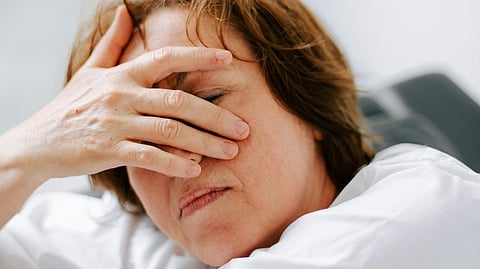Chuang says ,“There’s no blood test to certify you are in menopause, but the average age is 51.”
Perimenopause, a term that has gained more attention in recent years, is the time before menopause when estrogen hormones start to fluctuate, and menstrual periods are irregular. Chuang says perimenopause can last several years and shares many of the same symptoms as menopause.
“In the beginning of perimenopause, you may have more frequent and heavier cycles. A lot of women will get their period unexpectedly and sometimes bleed through their clothing, similar to the irregular cycles they had as teenagers,” Chuang says. “In the second half of perimenopause, the cycles start slowing down. You might go three or four months without a period, and when it comes, it may be lighter.”


